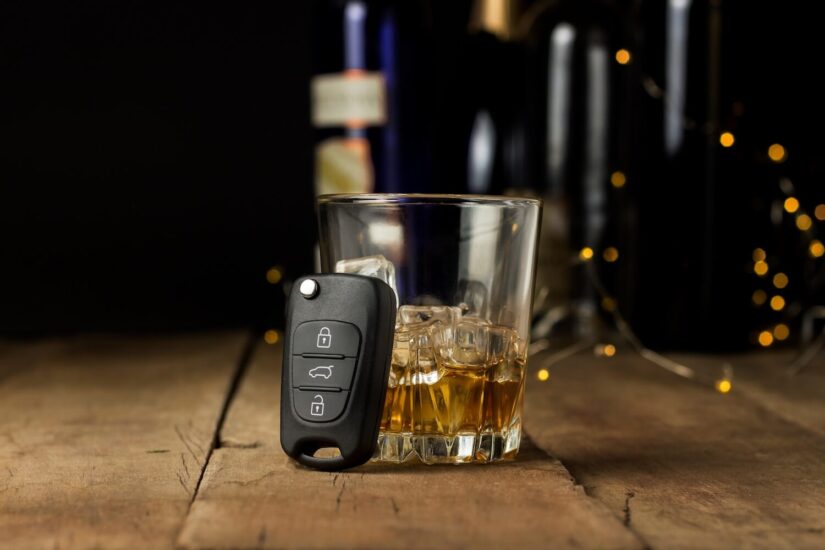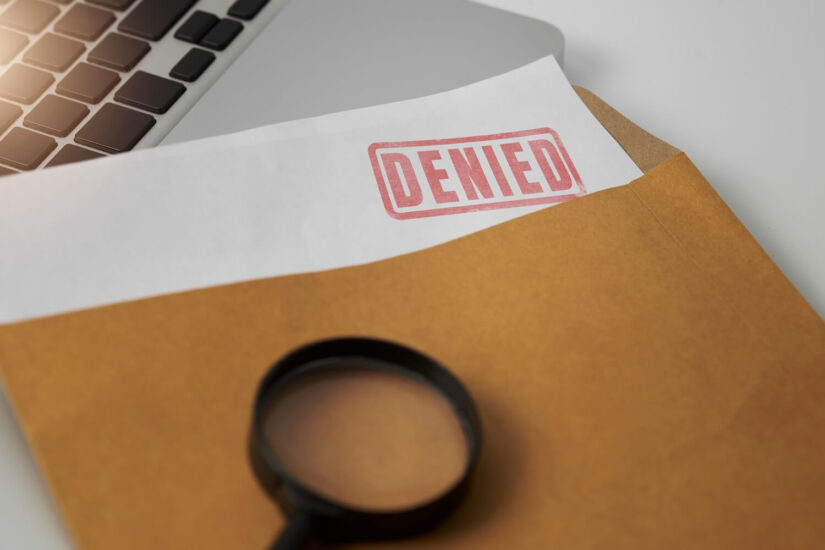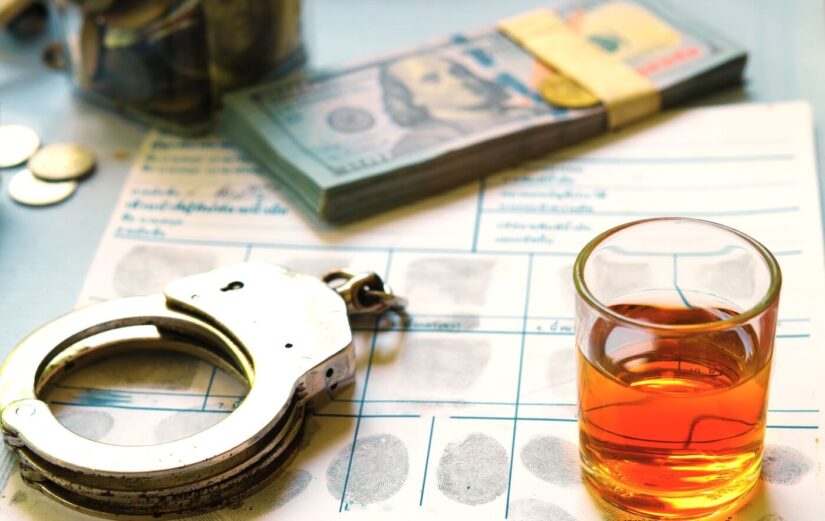
June 27, 2025
A second DWI in Texas comes with more severe consequences than a first offense. Here’s what you should know:
- Fines: Up to $4,000, plus additional state fees, making the total around $8,500.
- Jail Time: A mandatory minimum of 30 days (even if probation is granted), up to a maximum of 1 year.
- License Suspension: 180 days to 2 years, with an Occupational Driver’s License as a possible alternative.
- Ignition Interlock Device (IID): Mandatory installation, adding further costs.
- Permanent Record: A second DWI stays on your record for life, impacting jobs, housing, and even travel.
- Insurance Costs: Expect your premiums to double or triple, along with mandatory SR-22 insurance for at least 2 years.
Quick Comparison:
| Penalty Type | First DWI | Second DWI |
| Classification | Class B Misdemeanor | Class A Misdemeanor |
| Maximum Fine | $2,000 | $4,000 |
| Jail Time | 3–180 days | 30 days–1 year |
| License Suspension | 90 days–1 year | 180 days–2 years |
| Ignition Interlock Device | May be required | Mandatory |
Facing a second DWI? Act fast—request an Administrative License Revocation (ALR) hearing within 15 days to challenge license suspension. Consulting an experienced attorney can help reduce penalties or explore defense options like questioning the traffic stop or testing accuracy.
Second DWI Penalties in Texas
If you receive a conviction for a second DWI in Texas, the penalties are severe. The penalties significantly impact your finances, your freedom, and your driving privileges. Here’s what you need to know about the financial, legal, and administrative consequences.
Fines and Court Costs
The financial burden of a second DWI conviction is hefty. As a Class A misdemeanor under Texas law, the fine can go up to $4,000. On top of that, expect an additional state fee of around $4,500, bringing the total to approximately $8,500. These costs can stack up quickly, making a second DWI a costly mistake.
Jail Time Requirements
Jail time is unavoidable for a second DWI conviction in Texas. The law requires a minimum of 30 days behind bars, even if you’re granted probation. The maximum sentence can stretch up to one year in jail.
License Suspension and Getting It Back
Losing your license is another consequence of a second DWI. The suspension kicks in within 30 days of your conviction. To get your license back, you’ll need to pay a reinstatement fee—$125 for administrative suspensions or $100 for DWI-related offenses—and maintain an SR-22 filing for two years.
During the suspension, you might qualify for an Occupational Driver’s License (ODL), which allows limited driving for essential activities like work, school, or medical appointments. However, to fight the suspension, you must request an Administrative License Revocation (ALR) hearing within 15 days of your arrest. Keep in mind, even if you win the ALR hearing, a criminal license suspension might still be enforced. And for commercial drivers, the penalties are even stricter, potentially leading to disqualification from commercial driving altogether.
Ignition Interlock Device Rules
For second-time offenders, courts commonly mandate the installation of an Ignition Interlock Device (IID). If the device detects alcohol on your breath, it prevents your car from starting. It’s a hassle and adds to the financial strain, as you’ll pay for installation and upkeep.

Required Classes and Community Service
In addition to fines and jail time, courts typically impose other requirements aimed at rehabilitation. You’ll likely need to complete alcohol education programs and perform community service. These steps are mandatory before your license can be reinstated, adding another layer of consequence to your conviction.
What Makes Second DWI Penalties Worse
Second DWI penalties can become much harsher when certain aggravating factors come into play, sometimes escalating charges from a misdemeanor to a felony.
Circumstances That Increase Penalties
Several conditions can lead to more severe consequences for a second DWI. One of the most common is having a blood alcohol concentration (BAC) of 0.15 or higher. In Texas, this level of intoxication is treated as an enhanced offense, which can upgrade a second DWI from a Class A misdemeanor to a third-degree felony. Driving with a child passenger under the age of 15 also raises the stakes, as it can result in felony charges for child endangerment.
If an accident occurs while driving under the influence, the situation becomes even more serious. Accidents causing significant injuries or fatalities can lead to charges such as intoxication assault or intoxication manslaughter.
Other aggravating factors include having an open alcohol container in the vehicle, injuring first responders like police officers or paramedics, and accumulating multiple DWI offenses within a short period. These circumstances not only make the offense more severe but often come with additional mandatory penalties.
How These Factors Change Your Penalties
The presence of aggravating factors can substantially enhance the penalties for a second DWI. For example, a high BAC leads to elevated charges and requires the installation of an ignition interlock device on all vehicles you drive. The timing between your first and second DWI matters as well—courts are more likely to impose stricter sentences if the offenses occur less than five years apart.
If child endangerment is involved, the charge may escalate to a felony, bringing much harsher legal consequences. Similarly, causing serious injuries while driving drunk could result in intoxication assault charges, which carry prison sentences ranging from 2 to 10 years and fines up to $10,000. In the event of a fatality, intoxication manslaughter charges could lead to 2 to 20 years in prison, along with similar fines.
Even seemingly minor factors, like having an open container of alcohol, can lead to enhanced penalties that make a second DWI far more severe.
Life After a Second DWI Conviction
A second DWI conviction brings consequences that ripple through many aspects of life, affecting everything from career opportunities to financial stability and even international travel.
Job and Professional License Challenges
Dealing with employment hurdles becomes a major issue after a second DWI. Many employers and licensing boards are reluctant to hire or certify individuals with a DWI on their record, especially for roles involving driving, machinery operation, or significant responsibilities. If your job requires a valid driver’s or professional license, a conviction could lead to immediate dismissal.

To rebuild your career, honesty is key—concealing your record can backfire and lead to disqualification. Show potential employers that you’re working to turn things around. Participating in counseling or treatment programs, learning new skills, or earning additional certifications can demonstrate personal growth. It’s also worth consulting a lawyer about the possibility of sealing your record for better long-term prospects.
On top of career setbacks, the financial strain from a second DWI can be overwhelming.
Insurance Costs and Financial Struggles
A second DWI conviction often leads to a sharp increase in car insurance premiums—sometimes doubling or tripling them. On top of that, you’ll face costs for SR-22 insurance, ignition interlock devices, and license reinstatement fees. In Texas, for example, SR-22 insurance is mandatory for anyone convicted of DWI and is significantly more expensive than standard coverage. This requirement typically lasts for at least two years.
When you combine these costs with potential job loss, the financial burden can feel crushing. To ease the strain, focus on maintaining a clean driving record, shop around for better insurance rates, and consider taking a defensive driving course to show insurers you’re committed to safer habits.
Criminal Record and Travel Restrictions
The challenges don’t stop at finances and career. A second DWI leaves a permanent mark on your record, which can complicate everything from getting a job or renting an apartment to securing loans. It can also create major obstacles for international travel. For instance, countries like Canada and Mexico may deny entry to individuals with a DWI conviction, and immigration status in the U.S. could be at risk.
Before making travel plans, research the specific entry requirements for your destination. Some countries have strict policies regarding criminal convictions, so it’s wise to consult an attorney to understand how your record might affect your ability to cross borders. Always be truthful when answering visa or border inquiries, as providing false information can lead to even harsher consequences. For non-U.S. citizens, a second DWI can complicate green card applications and naturalization and could even result in deportation proceedings.
How to Fight a Second DWI Charge
Facing a second DWI charge can be overwhelming, but taking prompt and strategic action is crucial. While the penalties are more severe, an experienced attorney can uncover weaknesses in the prosecution’s case and potentially reduce or even dismiss the charges.
Common Defense Options and Plea Deals

There are several strategies that can make a significant difference in how your second DWI case unfolds. One key approach is questioning the legality of the traffic stop. If the officer didn’t have a valid reason to pull you over, any evidence collected afterward—like breathalyzer results, field sobriety tests, or even the arrest itself—could be ruled inadmissible in court.
Another common defense involves challenging the accuracy of breathalyzer tests. These devices require regular maintenance and precise calibration, and any errors in these areas can cast doubt on the results. Similarly, field sobriety tests can be unreliable due to factors like medical conditions, medications, or even poor testing conditions, all of which can be used to question their validity.
Negotiating a plea deal is often another avenue to consider. Prosecutors tend to push harder on second DWI cases and may offer less favorable deals. However, a skilled attorney might still be able to negotiate reduced charges—like reckless driving—or secure alternative sentences such as probation, community service, or participation in treatment programs instead of jail time.
In some cases, it may even be possible to have charges dismissed entirely. Procedural errors during your arrest, such as the police failing to follow proper protocol or lacking probable cause, can weaken the prosecution’s case. If your first DWI conviction had issues or a long time has passed, it may lessen the current charges.
What to Do After Being Arrested
What you do immediately after your arrest can play a major role in how your case proceeds. The first step is to remain silent and contact an experienced DWI attorney. Anything you say could potentially be used against you, so it’s best to limit your responses to providing basic identification. Firms like The Napier Law Firm offer 24/7 support to ensure you get the guidance you need right away.
Another important step is requesting an Administrative License Revocation (ALR) hearing as soon as possible to challenge your license suspension. While the details are fresh, document everything about the arrest—time, weather, substances consumed, medications taken, the officer’s behavior, and specifics about any sobriety tests. This information can help your attorney build a strong defense.
Make sure to attend all court dates and required meetings. Missing any of these can lead to additional charges or even an arrest warrant. Also, avoid discussing your case on social media, as those posts could be used as evidence.
While your case is pending, strictly follow all bond conditions. Violating these terms could hurt your chances of negotiating a better outcome and might lead to additional legal trouble. Let your attorney handle all communications with prosecutors and the court while you focus on meeting your obligations and working toward the best possible resolution.
The Napier Law Firm specializes in defending DWI cases in Texas. They offer free consultations and create tailored legal strategies to protect your rights and aim for a more favorable outcome.

FAQs
What should I do right away if I’m arrested for a second DWI in Texas to help reduce the penalties?
If you’ve been arrested for a second DWI in Texas, it’s crucial to act fast to try and reduce the penalties. Your first step should be reaching out to a seasoned DWI attorney. They can help you navigate the legal system and explore ways to lessen the impact of the charges. Quick action can make a real difference in how your case unfolds.
Another important step is requesting an Administrative License Revocation (ALR) hearing within 15 days of your arrest. This hearing gives you a chance to challenge the suspension of your driver’s license. On top of that, make sure to comply with all court and bond conditions. This might include attending all required hearings and completing any court-ordered alcohol or drug programs. Following these rules shows responsibility and can positively influence the outcome of your case. Taking these steps promptly can help protect your rights and improve your chances for a better result.
How do factors like a high BAC or driving with a child passenger impact penalties for a second DWI in Texas?
Certain situations can lead to much tougher penalties for a second DWI in Texas. For instance, having a high blood alcohol concentration (BAC)—especially 0.15 or above—or driving with a child passenger under 15 can significantly raise the stakes.
A high BAC can lead to more serious charges, which often come with steeper fines and extended jail time. If a child passenger is involved, the situation becomes even more severe. This could result in a felony charge, with penalties ranging from 6 months to 2 years in state jail and fines as high as $10,000. These factors are viewed extremely seriously and can lead to stricter consequences, such as longer license suspensions and mandatory programs.
Understanding your legal options is key if you’re facing charges like these. Taking the right steps could help lessen the impact on your life.
What are the long-term effects of a second DWI conviction on your job and travel opportunities?
A second DWI conviction in Texas can bring about significant challenges, especially when it comes to employment and travel. For starters, it’s likely to show up on background checks, which can make landing a job much tougher. This is particularly true for positions that involve driving or carry a lot of responsibility, as employers may see a repeat offense as a warning sign.
Traveling internationally can also become more complicated. Some countries might deny entry or enforce restrictions for individuals with multiple DWIs. While domestic travel within the U.S. isn’t typically affected, non-citizens could face issues with immigration status or visa eligibility.
To lessen the long-term impact of a second DWI, it’s worth considering legal options like record sealing or expungement. These steps might help reduce some of the barriers that come with such a conviction.